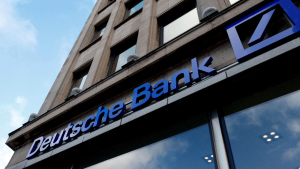Blockchain tech driving institutional-grade solutions: Blockchain Expo Europe

Blockchain is no longer a buzzword being thrown around by mainstream institutions as meaningful and fully-working pilots and programs come to the fore at Blockchain Expo Europe 2022 in Amsterdam.
Before the COVID-19 pandemic, a number of mainstream companies from various industries started to explore ways blockchain technology could be used to improve processes and products.
After two years of social distancing and working from home, the time to harvest the fruits of sewn seeds has arrived, as evidenced by some intriguing updates from major corporations utilizing blockchain technology.
The world of business consulting, healthcare and pharmaceuticals and the energy sector are all delivering working, blockchain-powered solutions that have seemingly proved the broad spectrum of utility promised by the burgeoning technology.
Cointelegraph was on the ground for the event and managed to touch base with a number of speakers who showcased how their firms were using the technology to drive innovation.
EY, the global business consulting firm, has been working hard to build enterprise-grade blockchain capabilities over the past three years. Federico De Poli, who heads up the global development of the EY OpsChain functionality, outlined how the firm had spent over $100 million over the past three years building a fulling working product solution.
Driving enterprise adoption has been key, helping clients navigate a new environment, building privacy tools focused on safety and helping companies run business processes on the Ethereum blockchain.
As De Poli explained, the company’s proprietary EY Opschain and EY Blockchain Analyzer are two main tools using blockchain technology:
“Opschain products is our business suite of products. We have traceability which is our most used tool which is being used in production by several clients in different industries. We have a contract manager which is being used in a first trial — it’s a tool which helps us do digital contracting between parties.”
EY’s public finance manager also allows governments to track the expenditure of funds, proving the widespread useability of blockchain solutions.
Healthcare and pharmaceutical firms also attended the RAI Amsterdam Convention center. Alex Popa, associate director of Blockchain for Pharma Supply Excellence, MSD (Merck), outlined a pilot that was aimed at addressing problems with multifaceted healthcare networks.

Plagued by expensive, inefficient and vulnerable systems, blockchain technology provides practical solutions to these problems. MSD has operated a pilot to combat a vexing industry issue and counterfeit drugs using Hyperledger Fabric, which allowed patients in Hong Kong to verify medicines’ authenticity from their source.
Jessica Lee, head of Blockchain for Johnson & Johnson’s Janssen Commercial North America, also showcased a piloted use case for a value-based healthcare system to share data privately, securely and transparently using blockchain technology.
Sabine Brink, blockchain lead at Shell, gave a compelling presentation focused on digital innovation in the energy sector. A key takeaway was the growing use of blockchain technology to drive transparency in energy.

The firm is engaged in several blockchain-powered projects deployed on public blockchains to address a long-standing propensity for the energy sector to work in silos. A key highlight was Shell’s work supporting Avelia, a sustainable, blockchain-powered aviation fuel tracing aimed at decarbonizing air travel.
Outlining that 90 percent of airline emissions are attributable to business travel, Avelia acts as sustainability as a service product for corporate flyers and airlines to book and claim sustainable aviation fuel:
“Energy is becoming distributed and decentralized, and it‘s hard to imagine it’s being orchestrated in a centralized way. There is no other way to get it done on a global scale, and blockchain has a huge role.”
Conversations with conference delegates and speakers highlighted the apparent strides made in developing working blockchain solutions across industries. The technology has driven innovation across industries, and mainstream companies are doing their part to drive new use cases and solutions for blockchain-based systems.















